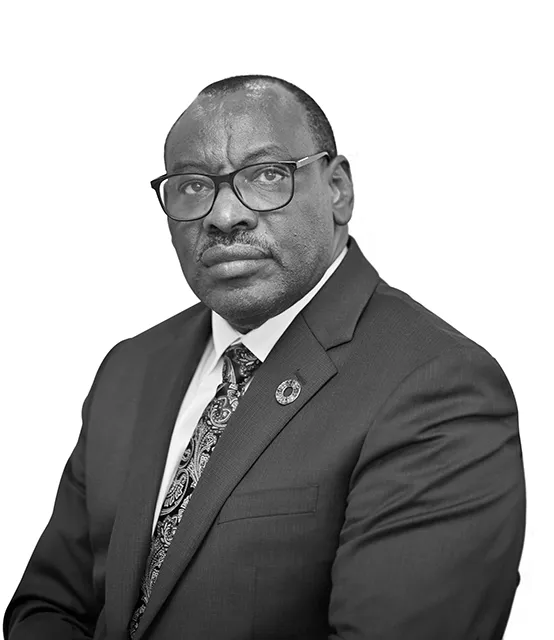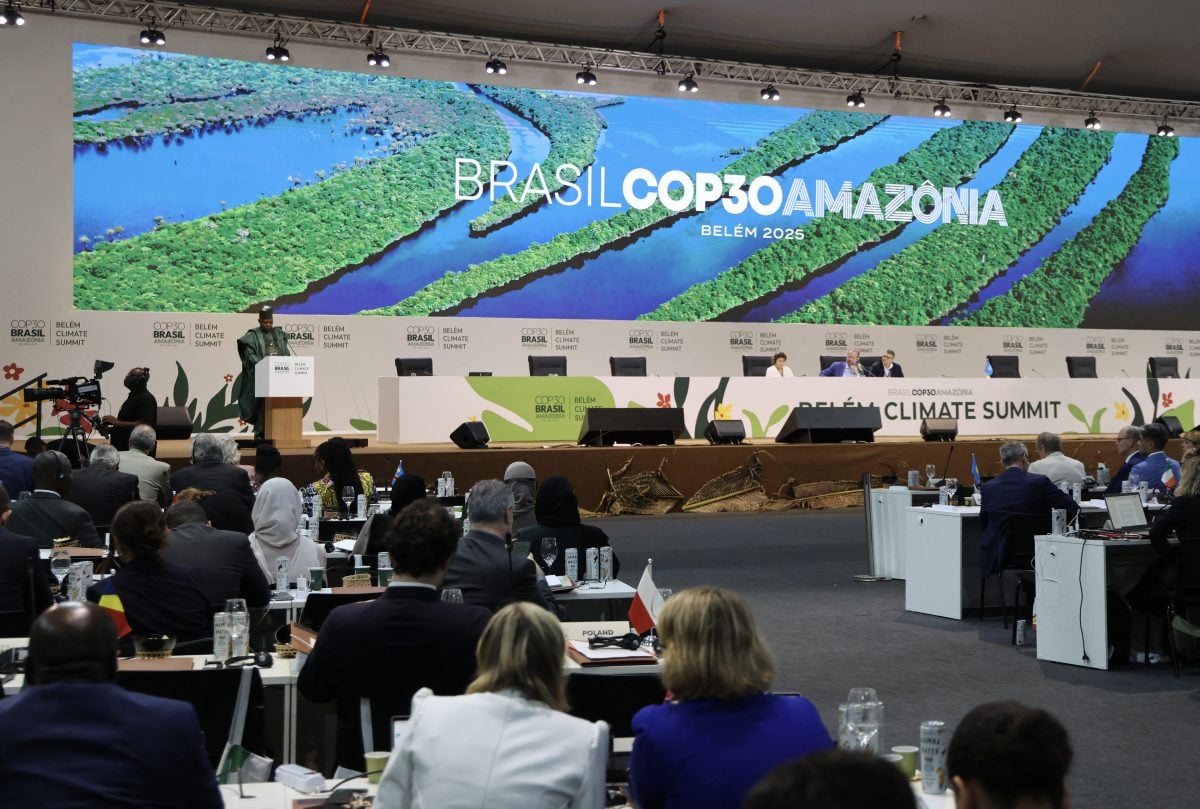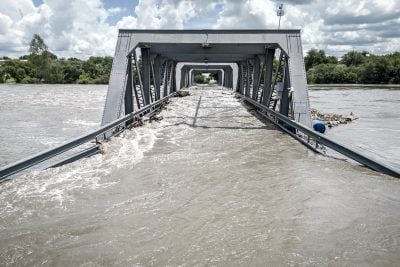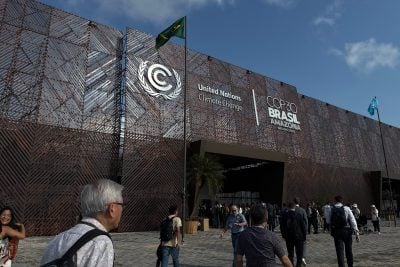‘Africa will not be defined by what it lacks, but by the solutions it provides. The continent will not wait for others to act. It will push forward its climate agenda with ambition, urgency, coherence and resolve, while demanding that others meet their respective duties and obligations under international climate agreements’.
This was the resounding message from two consequential climate conclaves held under the banner of the Africa Climate Summit in recent years: the first hosted by Kenya in 2023, and the second by Ethiopia in September 2025.
This is also Africa’s message to the upcoming UN global conference on climate change in Belém, Brazil, in November. It is a signal of Africa’s determination to be a climate solutions provider and investment destination, and to boldly claim its rightful place in the global climate economy.
The continent has resolved to build modern, green, and inclusive industrial economies by harnessing its vast natural resources endowment and fostering international partnerships and solidarity to secure jobs, opportunity and dignity for its people.
Africa is charging ahead on this journey with steadfast leadership and focus. The continent is one of the most ambitious and devoted actors in the Paris Climate Agreement. All African countries have signed the Agreement, and Africa has some of the boldest Nationally Determined Contributions (NDCs) or national climate policies and strategies.
Ethiopia, for example, became the first country in the world to ban imports of internal combustion engine vehicles in 2023. Its Green Legacy Initiative on reforestation and climate resilience, launched in 2019, has now planted over 40 billion trees. The country had a robust Climate Resilient and Green Economy Strategy well before the Paris Climate Agreement was established in 2015.
Meanwhile, neighbouring Kenya, despite accounting for only 0.16% of global GHG emissions, has an ambitious third-generation NDC (NDC 3.0) that seeks to reduce emissions by 35% and build a resilient green economy by 2035. The country already generates 90% of its electricity from renewable energy sources and commits to reaching 100% by 2035 through its NDC 3.0.
Many efforts like these abound across Africa. They include large-scale renewable energy projects; extensive forest landscape restoration initiatives; locally led adaptation efforts; and innovative climate finance approaches.
Over the last decade, for example, several African governments, corporations and development finance institutions have piloted a range of green finance instruments, including green bonds, blue bonds and debt-for-climate and debt-for-nature swaps. By 2023, more than two dozen green bonds had been issued in Africa, including in Nigeria, Kenya, South Africa, Seychelles, Tanzania, Rwanda, Gabon, Mozambique, Mauritius, Morocco, Namibia and Zambia.
Mutually reinforcing actions
For Africa, climate action, growth and development are not separate; they are mutually reinforcing and must be advanced together. Facing some of the most severe attrition of climate change, and despite contributing less than 4% to global greenhouse gas emissions, Africa understands better than most that in a world increasingly shaped by climate and environmental shocks, resilience is not a choice, and climate action can wait no longer.
Climate change amplifies pre-existing social, economic and political challenges, which in turn constrain the ability of states and communities to mitigate or adapt. Investing in climate action is therefore a precondition for sustained economic progress. Delaying action will only magnify the costs of inaction, including much steeper social and economic costs in the future.
This is not theoretical. On average, climate change already costs Africa up to 5% of GDP annually, with more vulnerable countries forced to divert up to 9% of national budgets to manage climate-induced damages. These are losses not only of wealth, but of stability, sovereignty and future opportunity.
Africa understands that resilience can transform vulnerability into viability. Investment in adaptation and resilience delivers consistently high returns, with every dollar yielding an estimated $10–14 in avoided losses and broader economic and social benefits.
Beyond mitigating loss, resilience also protects natural capital, safeguards supply chains and stabilizes economies. Ambitious and timely climate action by every country is not just vital to meeting global climate goals; it is foundational to inclusive global development, resilience and long-term prosperity.
In the fight against climate change, Africa does not lack ambition, clarity of purpose, leadership or innovation. What Africa lacks is commensurate leadership, partnership and solidarity on the part of advanced economies.
This structural imbalance handicaps the continent’s fight against climate change – and it must change. To illustrate with one example: climate finance remains the single most important constraint to the successful delivery of Africa’s bold vision for climate-positive development.
Africa faces a $160bn adaptation finance gap annually. The continent needs the industrialized countries to deliver on their climate finance commitments under the Paris Agreement, where such finance is an obligation, not charity. And aptly so, for as aforementioned, investing in climate action is not just necessary to achieve climate objectives but is also key to sustaining economic progress.
Africa leads, but others must act too
Africa is not going to COP30 in Belem empty-handed, nor with a begging bowl. In addition to its highly ambitious NDCs, the continent is already moving forward with other ambitious homegrown climate solutions as outlined in the Addis Ababa Climate Leaders’ Declaration. These include the Africa Climate Innovation Compact, which seeks to deliver 1,000 homegrown climate solutions by 2030 by mobilising $50bn annually in catalytic finance for resilient solutions in renewable energy, water, agriculture and transport.
This also includes a $100bn Green Industrialization Initiative, backed by a consortium of African financial institutions including the AfDB and AFC, to help transform Africa into a climate-smart growth engine. Furthermore, the continent is positioning itself to leverage its vast natural resources endowment, including critical minerals and nature-based solutions, to advance its climate and development agenda.
As the world meets in Brazil, Africa’s demands of the conference are grounded in its vision of climate-positive development.
First, COP30 must elevate and prioritise adaptation and fast-track implementation of all pre-agreed commitments, including the full operationalisation of the Loss and Damage Fund and finalisation of a Global Goal on Adaptation by 2026. Resilience must be framed as a fiscal asset and a productive investment in growth.
The quality and quantity of adaptation finance must be significantly enhanced based on measurable needs and the negative impacts of climate change. By integrating the long-term economic benefits of resilience into macroeconomic fundamentals, the world can not only reduce the fiscal pressures that many countries face but also unlock the capital, both public and private, needed to build sustainable and inclusive economies.
Second, the global financial architecture must be reformed to align with global climate goals; to lower the cost of capital; to help facilitate mobilisation of the capital necessary for both development and climate action by crowding in and de-risking private capital; and to enhance resilience to climate shocks.
We reiterate the call of the Nairobi African Climate Leaders’ Declaration for the adoption of principles of responsible sovereign lending and accountability encompassing credit rating, risk analysis and debt sustainability assessment frameworks.
For multilateral development banks (MDBs) and other development finance institutions (DFIs), this means aligning their portfolios with country-specific national climate targets and exploring innovative instruments – especially those aimed at reducing the predominant use of non-grant instruments – alongside other measures aimed at lowering the cost of capital to reduce the risk of a vicious climate-debt cycle.
MDBs and DFIs should deploy a diversity of climate finance instruments to more effectively respond to individual country needs. Specifically, instead of expensive debt instruments, MDBs should explore greater use of concessional grants and other instruments such as debt-for-climate or debt-for-nature swaps, resilience bonds, and the rechannelling of existing SDRs (Special Drawing Rights) into climate finance or issuing new climate-focused SDRs.
For world leaders, we reiterate the Nairobi African Climate Leaders’ Declaration proposal for a global carbon taxation regime, including a carbon tax on fossil fuel trade, maritime transport, and aviation, together with a global financial transaction tax (FTT) to provide dedicated, affordable and accessible finance for climate-positive investments at scale.
We also reiterate the Declaration’s call for a revaluation of the concept of Gross Domestic Product through the proper valuation of natural capital and ecosystem services, including but not limited to forests that sequester carbon.
Finally, the global climate governance architecture must be fundamentally fair, just and adapted to today’s challenges. The world deserves a global climate governance system that recognizes with great urgency and without equivocation that climate change is the single greatest challenge facing humanity – a system that demands and undertakes audacious and concerted action from all nations to lower emissions and reduce the concentration of greenhouse gases in the atmosphere.
Everyone knows that Africa is not historically responsible for global warming, yet it bears the brunt of the effects of climate change. This notwithstanding, neither African leadership nor its people have any interest in playing the victim card. The continent is solely focused on finding solutions and leading with action and urgency. For the sake of planetary health and human well-being, we demand that other nations, leaders, and peoples do the same.
If Belem is to live up to its billing as the ‘Delivery COP’, it must deliver on this simple proposition. Given the scale of interconnected crises, the world has no choice – and no time. The time to act, and to do so boldly, is now. Africa has heard the message and is already on the move. Will the rest of the world please join Africa in this singular generational task to secure our collective futures, and that of our, lovely, lonely planet?
Want to continue reading? Subscribe today.
You've read all your free articles for this month! Subscribe now to enjoy full access to our content.
Digital Monthly
£8.00 / month
Receive full unlimited access to our articles, opinions, podcasts and more.
Digital Yearly
£70.00 / year
Our best value offer - save £26 and gain access to all of our digital content for an entire year!

 Sign in with Google
Sign in with Google 



